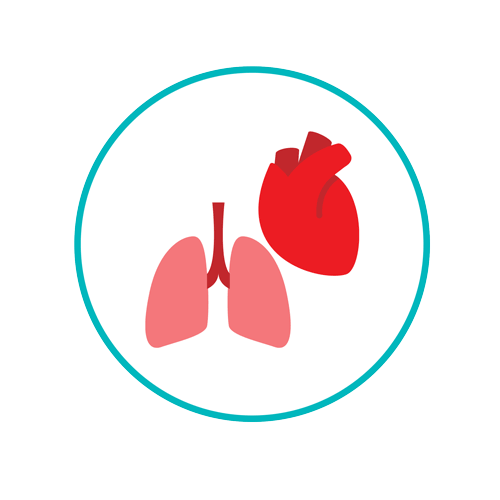Everything You Need to Become an NHS Waste Manager

Puns aside, considering a role within NHS waste management isn’t a rubbish career move…
As a Waste Manager working within the NHS, you have the potential and the power to make a real difference in the healthcare industry with a role that has a far-reaching impact on public health and the environment.
Whether you’re one of the many answering the NHS Clinical Waste Strategy’s call for all Trusts to have a dedicated Waste Manager, or if you’re simply an enthusiast – we’ve got you covered.
It’s also worth noting that the information in this blog is applicable across other healthcare waste management roles including private healthcare settings.
Let’s dig into what’s involved in the day-to-day, what’s needed to get started, and get some expert tips from experienced team members on everything you need to become an NHS Waste Manager.
TOPICS WE WILL COVER:
1 / Understanding healthcare waste.
2 / What does an NHS Waste Manager do?
3 / Advice from experienced Waste Managers.
4 / Helpful resources for NHS Waste Managers.
5 / Would you like more waste management tips?

Understanding Healthcare Waste
Your path to becoming a Waste Manager within the NHS begins with understanding healthcare waste, and the importance of healthcare waste management.
There are various waste streams and each has its own nuances that you’ll need to learn the ins and outs of to know the available disposal options and how to handle and manage it safely and effectively.
We recently put together our ‘Guide to Understanding Healthcare Waste’ which is a good place to start, it’ll help you:
- Understand healthcare and clinical waste.
- Recognise the common healthcare waste streams.
- Identify and classify your healthcare waste.
The guide also highlights some best practices for managing waste and provides an overview of where to find the most up-to-date regulations and legislation.
But understanding it is only the beginning, what do you do with that knowledge?

What Does an NHS Waste Manager Do?
There’s a lot involved in the day-to-day of a Waste Manager, and as anyone working within that role will tell you, no two days are the same.
At least not most of the time…
Your main responsibilities will include:
- Managing operational processes.
- Developing and implementing waste policies that align with the HTM 07-01.
- Providing resources that enable the effective segregation of clinical waste.
- Collating and reporting accurate data as required in ERIC.
- Ensuring compliance with duty of care responsibilities.
Your responsibilities will also entail providing leadership and motivation, training staff to manage waste correctly, assessing and managing risks, and being up to date with any legislative changes.
It involves more than just managing waste – it hinges on building relationships with clinical staff and folk like us, raising morale, and ensuring the welfare and well-being of your fellow healthcare professionals.
Advice From Experienced NHS Waste Managers
We spoke to some of our favourite Waste Managers with a combined tenure of 31 years to get some first-hand expert advice that can help you on your path to becoming one.
The unique perspectives and advice from each one give a good indication of how varied the role can be and the scope of possibility for anyone looking to work within the industry.
Ben Williams – 12 Years Experience – King’s College Hospital NHS Foundation Trust
Waste is a strange niche topic that you’ll need to have a passion for to find joy in your work.
Now waste may seem like a strange subject to have passion for, but believe me, it has its moments.
Having passion for the subject will make knowledge-building easier and you’re going to need that bank of knowledge because people will look to you for answers and solutions throughout your career.
Challenges
One of the biggest challenges is building rapport and establishing relationships with clinical staff – successfully navigating waste management within healthcare is impossible when barriers are up and no relationships exist.
Rewards
Those relationships are also one of the most rewarding aspects, knowing you’ve collaborated with others to make a real difference that has a wider impact on the environment.
Advice
A key piece of advice I’d give is to learn how to take a step back. The healthcare environment is fast-paced and it’s easy to lose sight of what you’re trying to achieve.
It’s important to enjoy what you do and make the most of building relationships, lean into it as much as you can as it’ll make your life easier.
It’s also crucial to learn how to decompress, you’ll face some high-pressure situations. Sometimes, you need to save tomorrow’s problems for tomorrow – the world’s still going to turn whether you’re worrying about it or not.
James Tetteh – 6 Years Experience – Royal Free London NHS Foundation Trust
As an aspiring Waste Manager, you need to wear multiple hats and understand the different elements of the role.
Firstly, there’s the contract management hat – knowing how to deliver the best value for money. Secondly, the service manager hat – delivering the service in accordance with the spec and exceeding expectations. Finally, there’s the operative hat – understanding what your operatives are facing and the difficulties that can come up when handling waste.
It’s important to be pragmatic to strike a balance between what you’re trying to achieve and doing it with limited time and labour resources.
Challenges
Compliance is a massive challenge, without a shadow of a doubt.
For most people, waste is an afterthought – a bin is where you put stuff you no longer want or need, but within disposal there are a lot of rules and regulations. The challenge is feeding that into all departments to help staff understand and care about compliance.
Rewards
It feels like an achievement to see your personal stats increase in line with wider sustainability targets and to know your work plays a huge role in the future of the planet.
It’s also rewarding to introduce ideas and innovations that make a real difference and see people that might not have previously been interested in waste be inspired towards a more sustainable way of living beyond the workplace.
Advice
Get stuck in and involved at the ground level. Put on a pair of gloves and work the service for some time to get a full understanding of the operation. Every hospital has its own ebbs and flows and you’ll need to tap into that to understand what the service looks like and how you can make an impact.
You’ll also need a strong stomach, there are sometimes situations where you need to provide guidance and when you lift a bin lid, you’re likely to see and smell unpleasant things, or potentially infectious things.
You’re there to provide a solution, so always be ready and prepared to overcome challenges and solve problems.
Oh, and never wear your best clothes to work.
Sumal Karunaratne – 13 Years Experience – Royal Free London NHS Foundation Trust
The first thing any aspiring Waste Manager needs is to understand the healthcare waste Bible – the Health Technical Memorandum HTM 07-01.
Understanding it involves more than just reading it though. You’ll also need to understand how it’s interpreted into action and how it works in practice on a hospital site.
Challenges
You’re guaranteed to encounter three core challenges: space, education, and cost.
You’re usually competing for space with other work programmes within hospitals looking to increase capacity as waste is often a final consideration when planning space allocation. Often, things like waste holds, compactors, etc. are an afterthought.
Equipping such a large and diverse staff group with education to know what’s required from your waste policies and practices can be difficult to execute.
Tight budgets and high expectations can also be difficult to navigate, effective waste management isn’t always cheap and you often have to spend money upfront to save money (and reduce CO₂e) in the long term.
Rewards
It’s a job with a lot of variety and challenges, it also comes with a lot of excitement.
Because of the industry-wide focus on Net Zero, the role is now viewed as much more of a strategic and sustainability-driven role, making you a key component connected to every area of the hospital – helping it continue running smoothly and successfully.
You’re also involved and relevant within every department. After all, they all have a bin.
Advice
Build up rather than tear down. Drilling clinical staff with compliance dos and don’ts and expecting them to be experts straight away isn’t effective, you’re far better off inspiring them to do the right thing.
You also need to be adaptable with staff. Make processes clear and concise and tailor your approach – not all clinicians understand the jargon or learn the same way.
Knowing your data is vital to enable you to demonstrate the impact you’re having and communicate it in a way that others care about. What’s important to the person you’re reporting to – CO₂e reductions, cost savings, or tonnages and waste splits?
Finally, lean on the experience and expertise within the industry, don’t feel like you have to go it alone, if you need help, don’t be afraid to ask.
Build up a solid network of waste experts and trusted consultants that you can turn to when faced with problems or challenges.
Helpful Resources for NHS Waste Managers
Hopefully you’ve found the advice from experienced Waste Managers helpful, but we’re not going to leave it at that.
Here’s a brief selection of useful resources:
- A Guide to Understanding Healthcare Waste
- HTM 07-01: A Summary of the Key Changes
- The Waste Hierarchy Explained
- 5 Ways to Reduce Your Carbon Footprint Within Waste Management
- How Healthcare Waste Management Can Impact Infection Control
Would You Like More Waste Management Tips?
We recently launched our email Network for Healthcare Heroes through which we’ll be providing monthly updates on all things healthcare waste.
Some of the benefits of joining our Network for Healthcare Heroes include:
- Helpful tips and reminders for managing healthcare waste safely and efficiently.
- Free educational materials and resources.
- Case studies on how our partners have turned challenges into opportunities.
- Up-to-date advice and information regarding compliance and legislation.
- Guidance and resources to help you reach Net Zero.
Let's Talk!
Your time is valuable, and we don’t want to play hard to get. You can either phone us directly on the details listed on our contact page, or feel free to fill out this short form and one of our team members will get back to you as quickly as possible.

